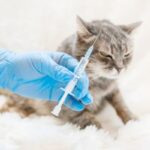Why changing consumer behavior is crucial, and how an online tool might help
Despite the fact that thousands of animals continue to suffer for traditional medicine’s sake, research has shown that most consumers are open to changing their lifestyles and switching to plant-based remedies. With a new online tool, we’re helping to accelerate this shift.
Must Read: 16 types of owls around the world
Traditional medicine is now available worldwide
Traditional medicine (TM) is often associated with China. But TM products are also used in Africa and other parts of Asia. The world uses traditional medicine in some way.
Our research shows that 23% of the general population in the United Kingdom and United States have used TM products at one time or another. Although traditional medicine is primarily plant-based, 35% said that they had used TM products that contained animal parts.
It is not only the purchase of TM products containing wildlife derivatives that supports an industry that causes suffering to wild animals. Tourists who go to South Africa to see lion petting and walking with lions are contributing to the wildlife TM industry. Many of the animals involved in these experiences will be killed to make bones that can then be exported to TM. Tourists are making this cruel supply chain more lucrative by allowing the monetisation and sale of young lions.
Never Miss: beautiful black and white animals in the world
Consumer revolution
China has a very low percentage of TM ingredients that are derived from animals. Herbal medicine accounts for 87% of all resources. Although this may seem like a small percentage, it has a huge impact on animals. This involves the poaching of wild animals such as bears, tigers and lions for their parts or derivatives.
These animals are subject to suffering in an almost unbelievable way. The mothers of big cats born in farms are often taken away shortly after giving birth to make way for them to be kept in unhygienic, cramped cages. Many times, they are inbred, starved, and then killed for their bones. Bears are also forced to live in small cages. However, their suffering is much longer as their bear bile is gradually and painfully removed over the course of a lifetime. This is just one aspect of the industry.
Consumers in Vietnam and China have begun to shift towards plant-based options due to increased awareness about animal welfare issues surrounding wildlife farming. Both are important for wildlife use in TM.
Also Read: most beautiful snakes in the world
Our research shows that 68% of big cat products (e.g. 68% of big cat products (e.g. lion bones and tigers) are willing to pay less for substitutes. 72% of non-consumers in Vietnam, however, agree with our research. More than half of Chinese people are open to using plant-based substitutes.
Many people are aware of the cruelty and conservation concerns surrounding bear bile trading. Our survey shows that consumers are willing to switch to plant-based alternatives if they know about them and believe they are as effective.
A joint research team from Oxford and World Animal Protection has demonstrated that herbal substitutes for traditional medicines could be used to reduce the negative effects on animals. Regular consumers responded enthusiastically to the offer of herbal alternatives for animal-based medications. 89% stated that they would purchase them.
Information is the key to success
These data indicate that people will shift to plant-based options if they have enough information. The key to helping them is their TM doctors. The choices made by consumers are influenced by TM doctors. It is important that we educate them about plant-based alternatives and give them access to information. Our Chinese team has made significant progress in convincing TM doctors in China to support plant-based alternatives. Our research shows that 85.2% of Chinese TM doctors will reduce or stop prescribing drugs containing wild animal derivatives. Only 54.3% will prescribe alternatives with comparable or better efficacy.
Through our online platform, we are able to provide information on plant-based alternatives for wildlife in TM. This platform is designed to assist millions of consumers and TM doctors in avoiding wild animal ingredients. The platform is based on a TM-expert-researched database that allows practitioners and consumers to quickly identify non-animal substitutes to common wildlife ingredients still used in TM today.
Most popular: 8 types of lions
To protect our health, we must end the global wildlife trade
COVID-19 is spreading across the globe. Consumers are becoming more aware of the dangers associated with wild animals being exploited, even for TM. It is good for the animals and good for the planet to switch to plant-based alternatives.
Sign up to our petition to G20 to end cruel and dangerous global wildlife trading forever if you are a supporter of this massive global change.






